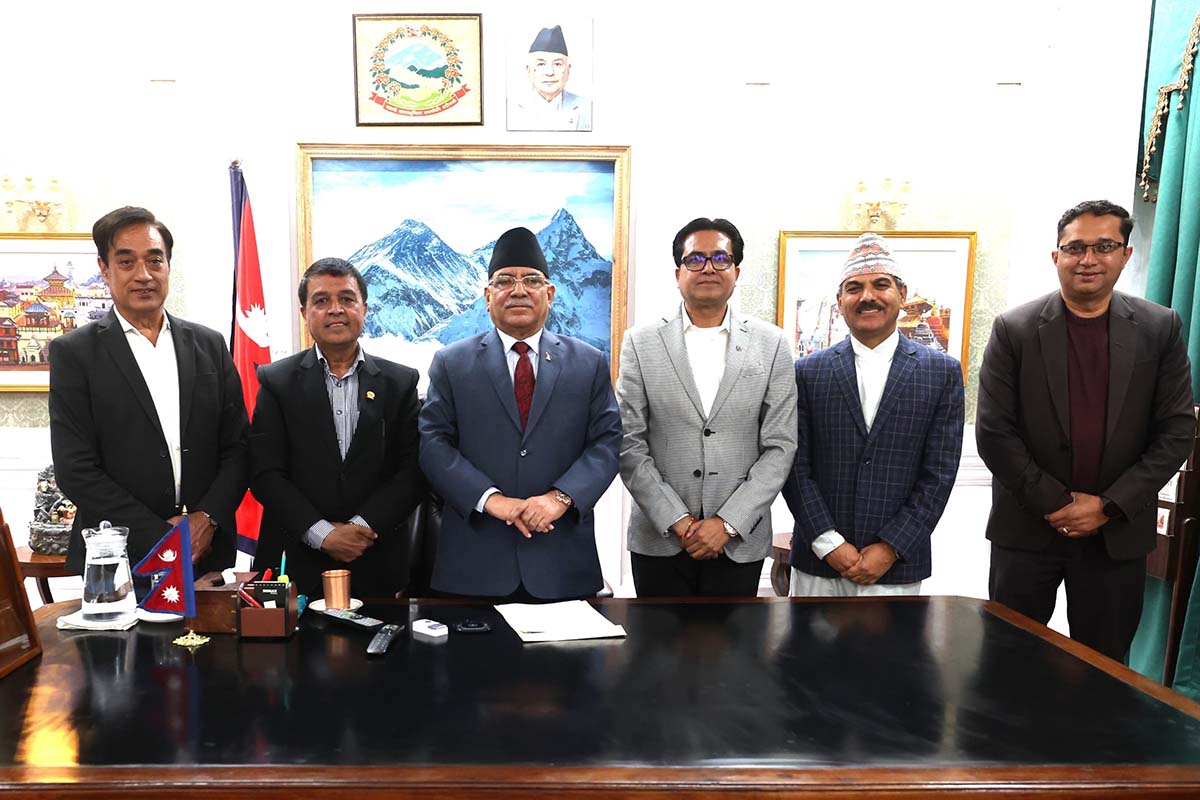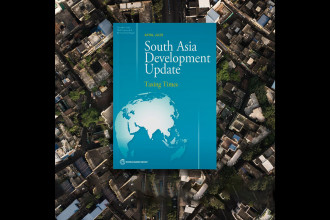
KATHMANDU: The heads of private sector representative organisations have urged Prime Minister Pushpa Kamal Dahal to cultivate a conducive environment for business, underscoring that the economy remains fragile despite enhancements in the external sector.
Federation of Nepalese Chambers of Commerce and Industry (FNCCI) President Chandra Prasad Dhakal, Confederation of Nepalese Industries (CNI) President Rajesh Kumar Agrawal and Nepal Chamber of Commerce (NCC) President Rajendra Malla met with the Prime Minister on Sunday. They proposed that the government should place a high priority on economic advancement. The Prime Minister had arranged the meeting to obtain insights about the economy from the leaders of the private sector representative organisations.
Due to low demand, industries are operating at less than 40% capacity on average. The policies enacted to manage the rapid growth following the Covid 19 pandemic have considerably decelerated market transactions, despite significant improvements in the balance of payments and foreign exchange reserves. Essentially, the challenges that originated with small enterprises in the economy have now extended to banks and financial institutions (BFIs) due to the policies of the government and regulatory bodies. In the wake of the impact on BFIs, the private sector has drawn the government's attention to the subsequent effect on government revenue.
"There is low demand, the perception of the private sector is negative, and projects are not progressing smoothly," FNCCI President Dhakal stated during the meeting, adding, "The government must take steps to address these issues."
Dhakal suggested that the government should increase capital expenditure to stimulate market demand and broaden credit facilities, including refinancing, to ensure funds reach rural municipalities and small towns. He also stressed that the proposed bills should eliminate provisions that subject the private sector to the oversight of the Commission for the Investigation of Abuse of Authority (CIAA), vigilance centre, and other bodies, as it is unfair. Moreover, President Dhakal demanded that the private sector be included in the order of dignity to honour businesspersons.
During the meeting, CNI President Agrawal opined that businesspersons should have an environment where they can operate freely. "In India, the provision of imprisonment for commercial offences has been abolished and fines have been increased," he said, "However, in Nepal, businesspersons are living in fear, and this system needs reform." Agrawal emphasized the need to abolish double taxation on capital gains tax, terminate the system where multiple agencies scrutinise the private sector, and implement debt restructuring and rescheduling.
NCC President Malla suggested that the risk weight system in real estate and share loans should be reduced to 100%. "Currently, there is a 125% risk load," he said, "If it can be reduced to 100%, market demand will increase." He also suggested that a discount should be applied to current capital loans, allowing the bank and borrower to decide.
The private sector called for government support to ensure the smooth operation of projects that were initiated with government approval. Additionally, the representatives of the private sector drew the government's attention to the fact that actions targeting the private sector could negatively impact the economy.
During the meeting, Prime Minister Dahal gave assurances that the government would initiate measures to bolster the economy, taking into account the recommendations of the private sector. He also committed to the government's efforts to ensure the prompt completion of projects initiated by both the private sector and the government. Baikuntha Aryal, the Chief Secretary of the Government of Nepal, was also present at the meeting.
Despite the significant inflow of remittances and the accumulation of foreign currency, the absence of market demand has resulted in disillusionment among businesspersons. As a result, a considerable amount of money remains unutilised at BFIs.






